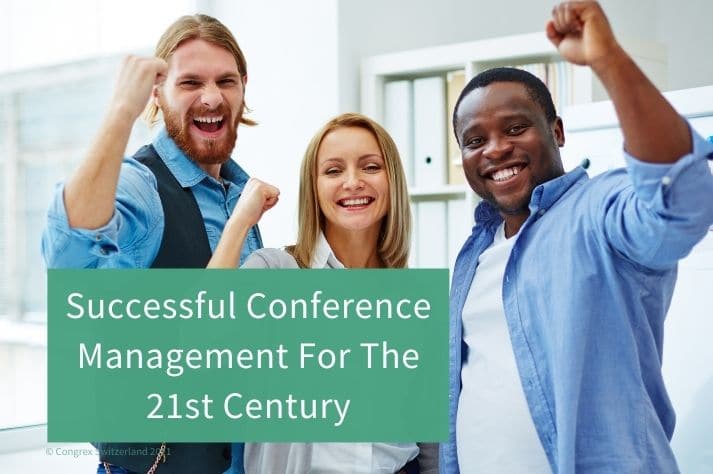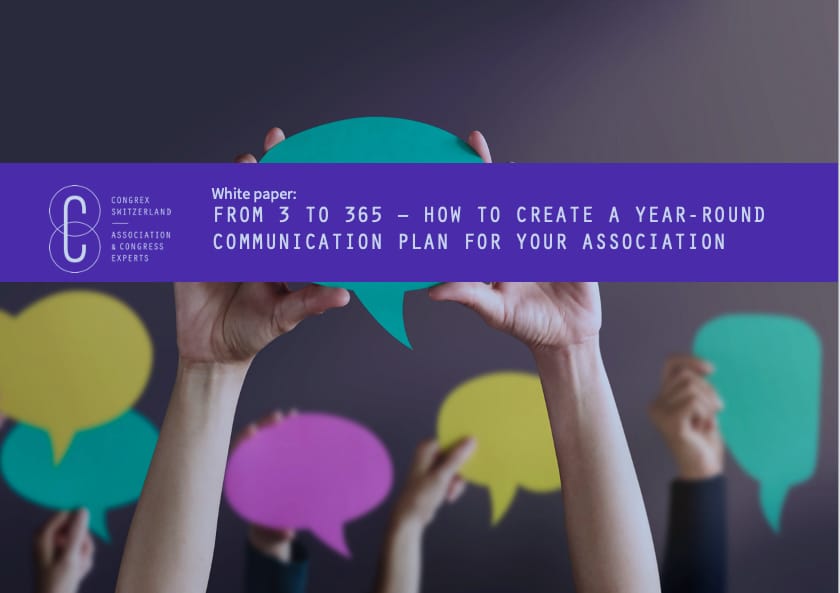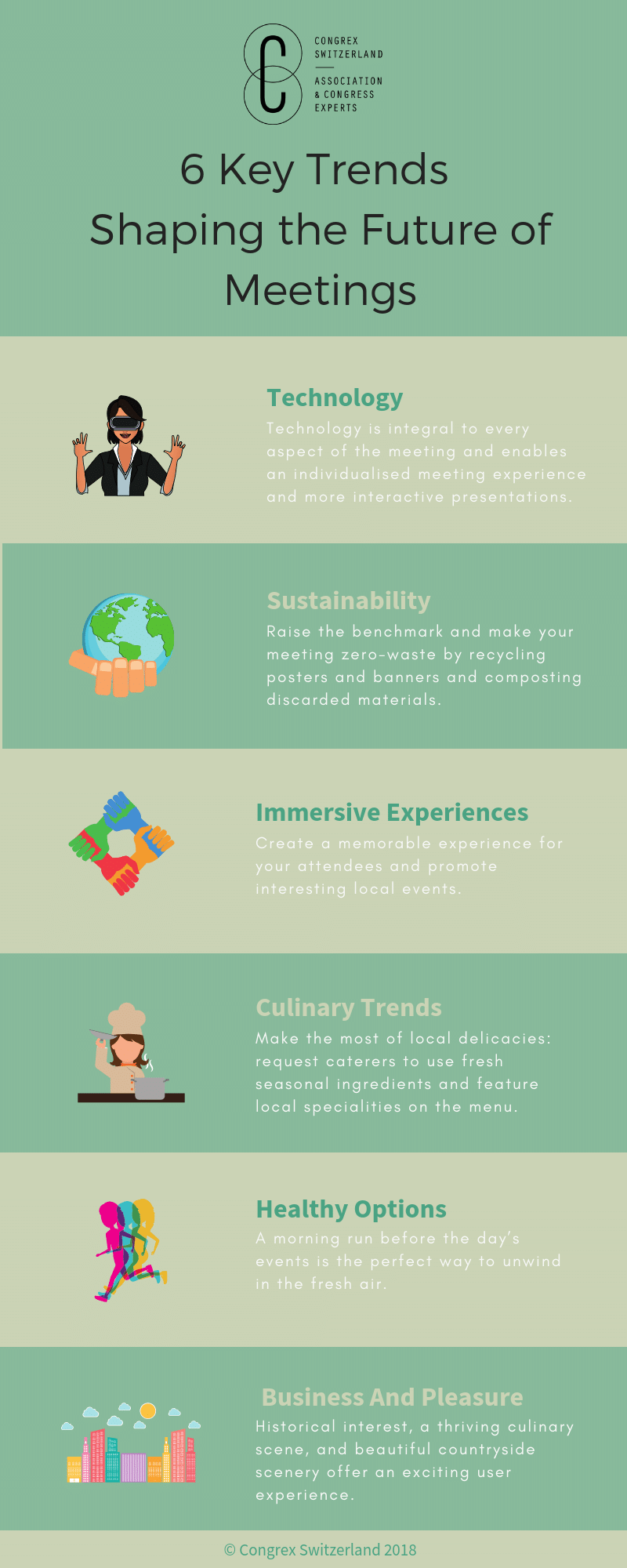The starter guide to successful conference management
In a previous blog post, we outlined a seven-step guide to conference management. The article was published in 2019, and much has changed since in the world of event planning. It is time to expand on some of the arguments made in that blog post so that event managers can plan conferences that are aligned with new needs and requirements.
Defining KPIs when planning a successful conference
KPI definition is essential in determining what makes a conference successful since they are the benchmarks that define success. Some of the most important conference KPIs to track include:
Finance-related KPIs
- Total registration numbers.
- Number of registrations month-by-month.
- Number of registrations by ticket type (for example, early-bird tickets, student tickets, regular price tickets, etc.)
- Attendance numbers.
- Registration – Attendance ratio.
- Total sponsorship revenue.
- Sponsor satisfaction.
- Gross revenue.
- Event cost – revenue ratio.
- Net profit.
Audience-related KPIs
These are indirectly related to the event’s financial goals, as they primarily relate to the quality of attendee engagement and interaction levels.
- Response rate to live polls and surveys.
- Attendee satisfaction.
- Net promoter score. This KPI indicates how many attendees are willing to recommend the event to others. It is usually obtained through surveys with questions like “how likely are you to recommend this event?”. It helps measure the event’s impact.
- Individual session views.
- Individual session or speaker ratings.
- For online events, average session view duration.
- Event app downloads.
- Event website views.
- Best-performing sessions (either as the total number of views or highest ratings).
- Social media mentions.
- Social media engagement.
- Leads generated.
- New members acquired (if the conference is organised by an association or institution that offers membership schemes).
Budgeting
The practical aspect of budgeting involves equipment, venue rental, marketing, catering, speaker accommodation, and travel expenses. Virtual events replace venue-related costs with event management technology, such as registration platforms and conference apps.
RELATED: Strategies For Conference Registration Pricing
In our 2019 blog post, we glossed over the concept of partnerships. The idea of partnership as a driving force in good conference planning has become more critical, especially in the light of new health, safety, and hygiene regulations.
Adapting to the new environment may require budgeting with new priorities in mind, including building new relationships with partners and suppliers who have a strong focus on compliance. This can be crucial delivering an exceptional event that inspires trust in attendees and helps forge lasting relationships with partners and sponsors.
Choosing a conference format
The event format is where the most significant changes have recently taken place since conference planning pivoted to the online sphere virtually overnight.
In-person conferences are slowly returning to the events world. However, we must remember that most will still have digital components, such as GDPR-compliant digital badges, beacons, digital signage, and event apps.
Blended, multi-hub, and entirely virtual conferences can be cost-effective but require meticulous attention to technical aspects. Moreover, formats that feature online components cannot just be a carbon copy of in-person events. Conference planners should capitalise on the unique opportunities that online formats entail, like the chance of reaching an unlimited audience no longer restricted by geographical boundaries.
Whether the conference content and activities are planned around value delivery and engagement, it is perfectly possible to organise a successful conference irrespective of format.
Content planning
Content is the bread and butter of a conference. To ensure you get it right, do not let the event’s budget dictate content but incorporate the audience’s perspective. Every piece of content should answer the question “why should people attend and how will attendance bring them value into their professional lives?” – and there are additional questions the conference agenda should address:
- What does your target audience expect from a conference?
- How can you make the experience smoother? For example, you can create a pre-conference guide, access to post-event sessions, etc.
- How can you plan content so it prevents fatigue and distraction?
- What are the benefits of live, pre-recorded, and on-demand content for your specific event?
- How can you incorporate user-generated content? Interactive features that enable conversations between conference attendees, speakers, and sponsors can create value for participants and give the organiser insights into emerging topics. Some ideas to consider include one-to-one and group chats, pre-arranged meetings with sponsors, Q&As, team building or ice breaker exercises, and targeted networking.
Event and content delivery tools
Tool selection should be based on the alignment between platform features, event goals, and the desired ROI. Chose conference management software with two additional criteria in mind:
- Saving time and automating repetitive tasks for better time efficiency and resource allocation.
- Amplifying attendee engagement and participation from start to finish.
Tech tools can now handle a wide range of critical tasks, from abstract submission to invoicing, registration, attendee management, badge printing, session hosting, networking, data reporting, and branding.
The specific features of a content delivery platform depend on the event’s format, which is why expert advice from a professional conference organiser can help determine which platform meets your event goals and which is easier for your organisation to adopt or integrate with existing tools and systems.
Conference management and promotion
Irrespective of the conference format, much of the promotion will take place online. This can be more complex than it seems at first sight, given the multiple touchpoints involved. Again, here is crucial to have the support of expert professionals who can craft a comprehensive digital marketing campaign. Some strategies to consider include:
- A landing page.
- A dedicated event website.
- Management of the organiser’s social network accounts for strategic social media activity.
- Email marketing.
- Written and visual content, including videos.
- Creation and management of promotional activities like discounted conference tickets or giveaways.
- Advertising campaigns, which may involve PPC, social ads, or leveraging the audience of keynote speakers.
It is vital to find correspondence between the conference KPIs and the data points linked to the above marketing activities for best results.
RELATED: Why Non-Profits use Consultants?
Post-conference activities
Successful conference management aligns perfectly with the attendee journey from beginning to end, so it is essential not to overlook post-event activities. These are still part of that journey and the conference’s life cycle.
Conference planning can include follow-up activities like:
- Curated content (session recordings or videos, written summaries, etc.).
- Opportunities for community building among attendees after the event.
- Surveys.
- Requesting contributions from attendees and speakers, like blog posts where they detail their experience attending the event or the conference highlights from their point of view.
- Assessment of event data using conference management software reporting and analytics tools. Key aspects to examine include the channels that drove most registrations, where tech tools performed well and where they struggled, and which questions arose that could help plan future conference content.
- Leveraging momentum right after the conference and creating referral incentives for future events.
Conclusion
Managing a great conference in the 21st century involves spotting new opportunities for value creation and supporting their implementation with fitting tech tools. With the support of an expert PCO, your event can help you gain recognition as an industry leader and deliver the desired ROI.
At Congrex, we specialise in conference organisation and provide comprehensive project management services to set your conference apart from the rest. Contact us and start creating a first-class conference management plan.
——
Congrex Switzerland is an internationally operating agency delivering customised solutions. This encompasses the overall organisation of conferences and meetings, including the management of hotel rooms and strategic consultancy. Annually Congrex Switzerland organises approximately 45 events with over 73’000 delegates. Amongst our clients are international associations, governmental organisations and corporations.








